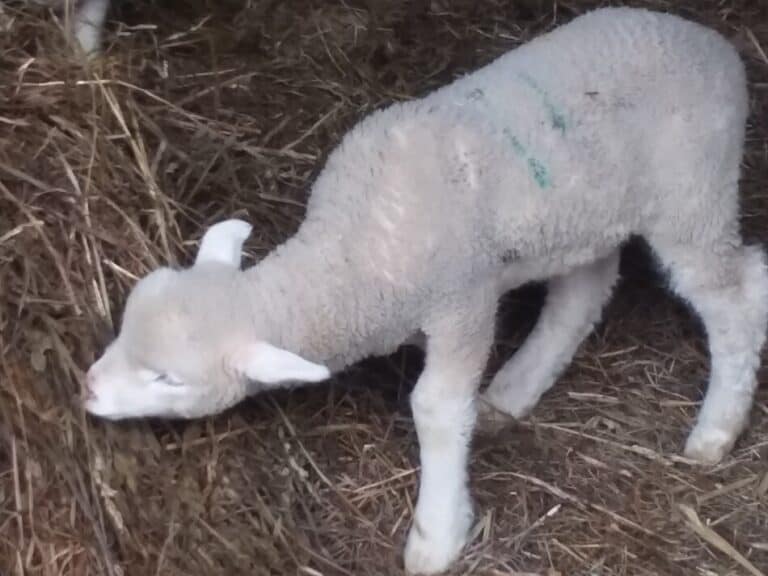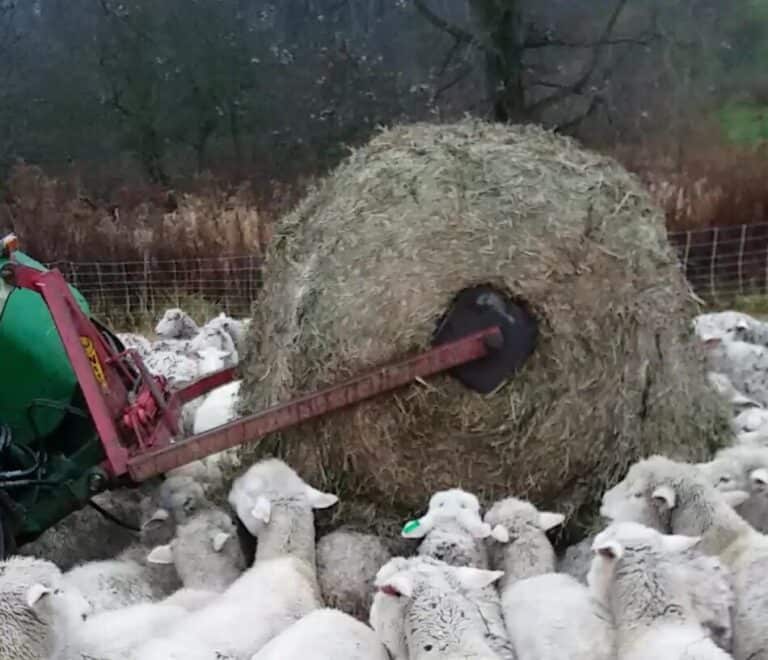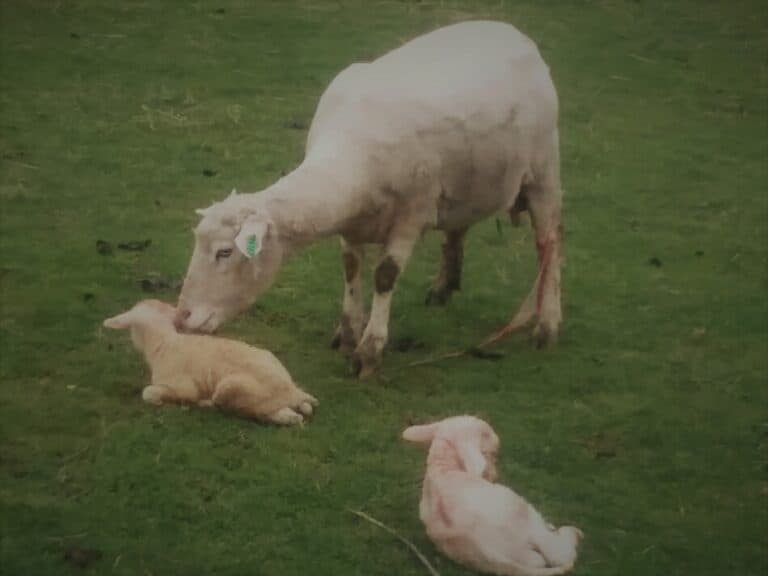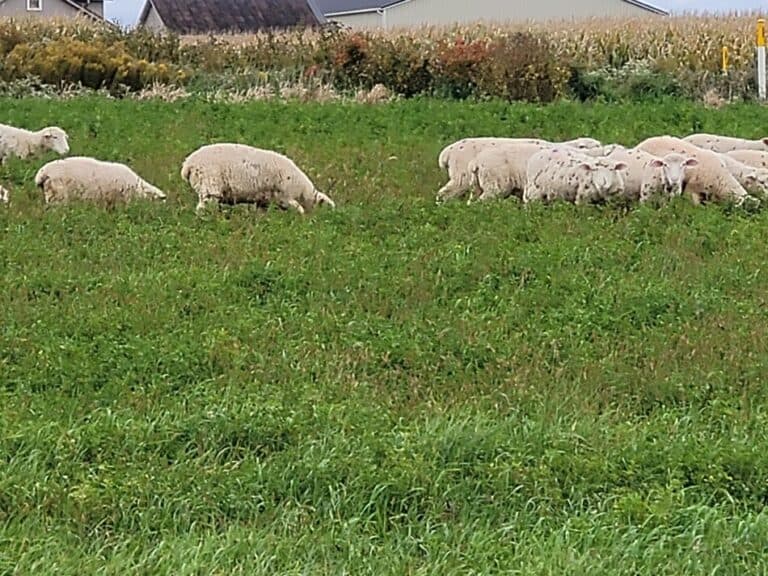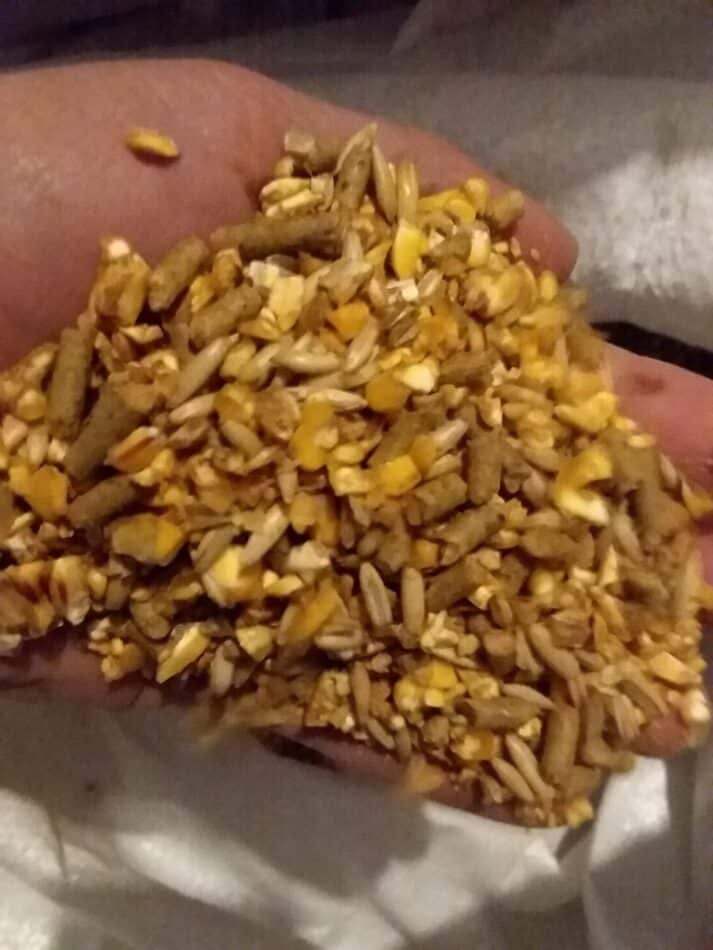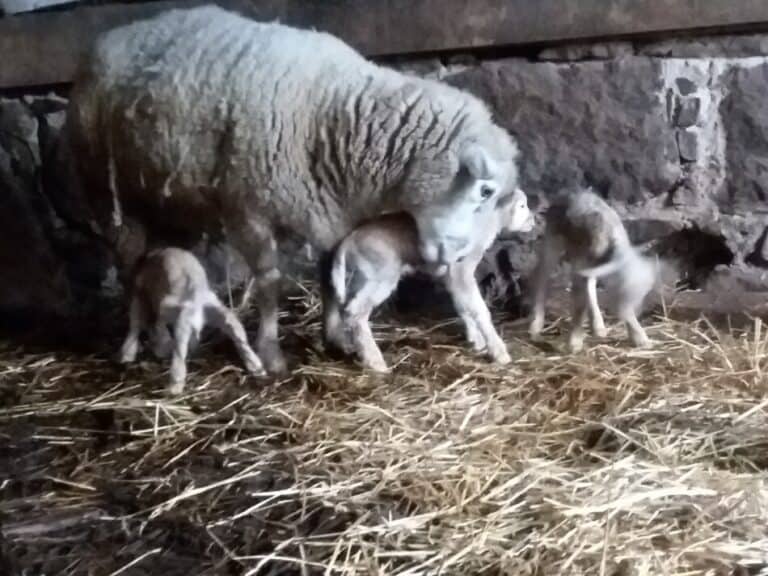Can You Breed Closely Related Sheep? (Ram to daughter, siblings, etc.)
A common problem with small flocks of sheep or sheep with a limited genetic pool is what to do when you need to breed the ewes but the only ram you have is the one you have been using for years.
That means you’ll have some closely related sheep breeding to produce inbred lambs. Is this a workable solution or do you need to figure out something else?
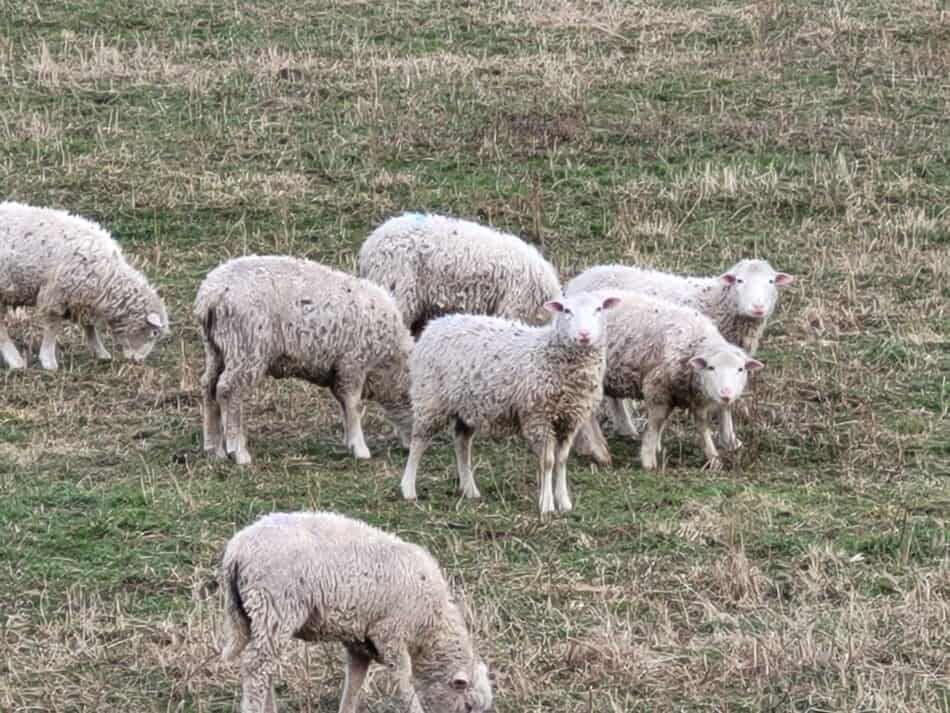
You can breed closely related sheep
You can breed sheep that are closely related, for instance breeding a ram to his daughter. This is called inbreeding.
Is It Okay To Inbreed Sheep? is my article that goes over the reasons why inbreeding is used and the situations where it is a poor decision.
Examples of breeding closely related sheep would be:
- father to daughter
- son to mother
- breeding half siblings
- breeding full siblings
The specific animals used are slightly different in each example, but the potential problems remain the same: by breeding closely related you are running the risk of complications from inbreeding.
While you can breed closely related sheep, the real question you need to ask is should you? Chances are that is a no, especially if you are new to sheep.
Inbreeding is a management tool used to increase a certain trait in the flock. The most common example of inbreeding is probably a father to daughter breeding.
Common situations where inbreeding is considered
Here are some common situations where inbreeding in sheep is likely to be used. To be clear, many of these situations are lack of management, not good reasons to breed closely related sheep.
| Situation | Is inbreeding a good idea? |
| you are short on time and need a ram now | no |
| you have a slow growing ram lamb left over from last year | no |
| you didn’t get around to castrating ram lambs | no |
| you don’t feel like getting another ram, even though he is related to all of your ewes | no |
| you have experience with sheep and a specific plan to improve your flock | maybe |
| you have years of sheep experience and plan to solidify a specific trait that you have or need in your flock by using only on site genetics | yes |
Read through this table and see where you are at with the reasons why you are thinking about inbreeding your sheep.
The short version here is don’t be lazy, if you need another ram, get one. I don’t mean to be harsh, merely upfront, inbreeding is not to be used lightly.
If you have years of sheep experience and a solid plan, consider inbreeding as a potential way to get what you are looking for in your flock.
That does not mean inbreeding is the answer you seek, it is a potential answer that you will need to research and carefully consider to determine if inbreeding suits your situation and your goals.
How Do You Keep Sheep From Inbreeding? is my article that goes over some of the simple steps you can take to reduce the chances of inbreeding in your flock.
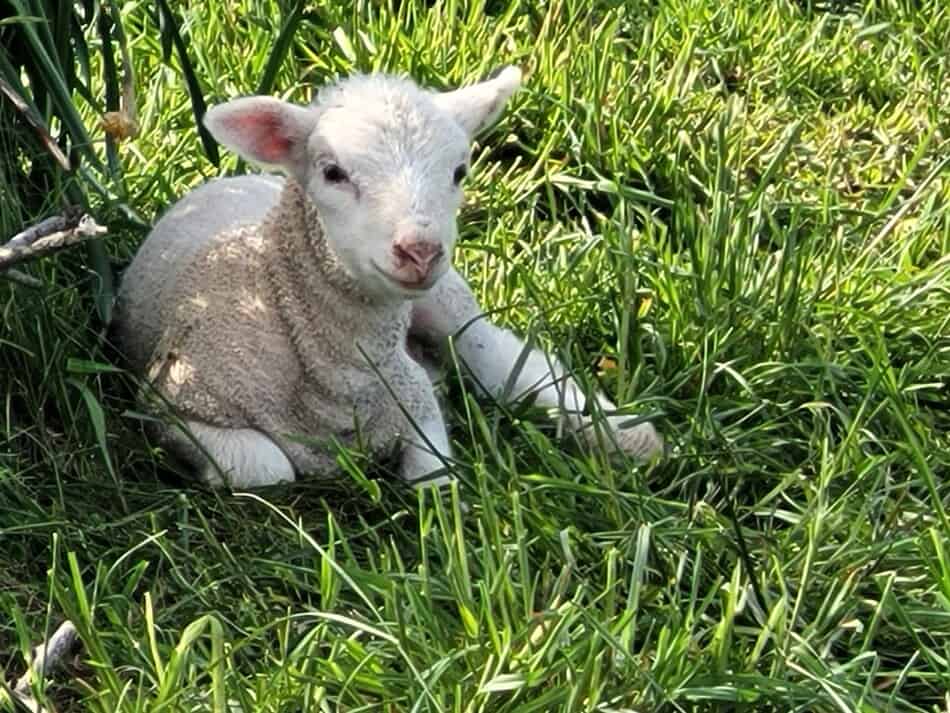
When should you inbreed?
Sheep farmers with experience and a well thought out plan could consider inbreeding. Maybe it will be a good option, maybe it won’t. If you are new to sheep, chances are you should not inbreed your flock.
Inbreeding is a tool for experienced sheep farmers to use selectively and with care, note the “selectively” and “with care” parts. Inbreeding is not for everyone, and most likely, not for most.
Do you have a specific trait that you need to have increased in your flock and the management ability and drive to orchestrate this work?
Are you sure of the specific trait you need?
Have you fixed all of the leaks in the system, meaning are you on your game with the management of the flock under normal circumstances? Inbreeding will only add to your job, at least in the short term.
Are willing to work for years, through many possible rounds of unintended results to get the traits you want solidified in your flock?
If you can honestly answer yes to all of these questions, then inbreeding may be right for you. Look into it further and see if this is the right management tool for your particular situation.
When should you avoid inbreeding?
Avoid inbreeding your sheep if you do not have a well thought out and specific goal for this particular breeding decision.
If inbreeding is your last minute answer since you don’t have a plan or you’re late getting another ram or any thing else along these lines, do not inbreed your sheep.
Inbreeding requires a plan, without one you are just going to have a mess and be headed towards disappointment.
Inbreeding can be costly
Inbreeding should be avoided if you are not able to handle set backs, are working with a short time horizon or are not willing to think through your options and formulate and stick to a plan.
Inbreeding requires time and money. Why? You will have some results that you like, at least hopefully you will, and you will also have plenty of results that do not go as planned. Can you handle it?
What happens if the entire lamb crop takes months longer to grow than normal?
What happens if half of the lambs die due to a combination of a weather event and weaker than normal genetics?
Inbreeding can have lasting consequences
Another area where inbreeding can have negative consequences is in future performance of your flock. The catch with this one is you don’t know about this until the results show up years later.
What happens if you end up with problems in your yearlings or coming two year olds?
This means you are working with sheep that you have had for a year or two, have more sheep of this breeding plan on the way and now you have what looks to be a total mess.
Can you financially survive selling off these sheep and potentially starting over? Not to mention the toll it will take on you mentally.
While it may sound otherwise, I’m not trying to scare you off of inbreeding, I’m trying to present the results in a straightforward manner. Choosing the genetic direction of your flock is a weighty matter.
You have a right to know the potential good and the potential bad so you can make an informed decision about what will be the best move for you, your sheep and your farm.
For more data on inbreeding in sheep, consider reading:
Science Direct has an article on Inbreeding trends and genetic diversity in purebred sheep that goes over the frequency of inbreeding in purebred sheep and what that does to the performance of the flock.
For an overview of sheep breeding systems, read Sheep 201: Breeding systems.
